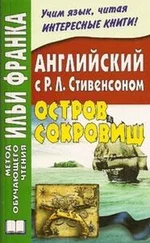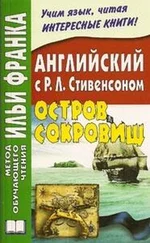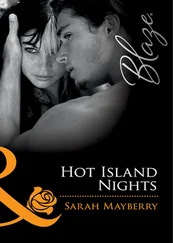Роберт Стивенсон - Island Nights' Entertainments
Здесь есть возможность читать онлайн «Роберт Стивенсон - Island Nights' Entertainments» — ознакомительный отрывок электронной книги совершенно бесплатно, а после прочтения отрывка купить полную версию. В некоторых случаях можно слушать аудио, скачать через торрент в формате fb2 и присутствует краткое содержание. Издательство: Иностранный паблик, Жанр: literature_19, foreign_antique, foreign_prose, на английском языке. Описание произведения, (предисловие) а так же отзывы посетителей доступны на портале библиотеки ЛибКат.
- Название:Island Nights' Entertainments
- Автор:
- Издательство:Иностранный паблик
- Жанр:
- Год:неизвестен
- ISBN:нет данных
- Рейтинг книги:5 / 5. Голосов: 1
-
Избранное:Добавить в избранное
- Отзывы:
-
Ваша оценка:
- 100
- 1
- 2
- 3
- 4
- 5
Island Nights' Entertainments: краткое содержание, описание и аннотация
Предлагаем к чтению аннотацию, описание, краткое содержание или предисловие (зависит от того, что написал сам автор книги «Island Nights' Entertainments»). Если вы не нашли необходимую информацию о книге — напишите в комментариях, мы постараемся отыскать её.
Island Nights' Entertainments — читать онлайн ознакомительный отрывок
Ниже представлен текст книги, разбитый по страницам. Система сохранения места последней прочитанной страницы, позволяет с удобством читать онлайн бесплатно книгу «Island Nights' Entertainments», без необходимости каждый раз заново искать на чём Вы остановились. Поставьте закладку, и сможете в любой момент перейти на страницу, на которой закончили чтение.
Интервал:
Закладка:
“What does fussy-ocky mean?” I asked of Uma, for that was as near as I could come to it.
“Make dead,” said she.
“The devil it does!” says I. “Did ever you hear that Case had poisoned Johnnie Adams?”
“Every man he savvy that,” says Uma, scornful-like. “Give him white sand – bad sand. He got the bottle still. Suppose he give you gin, you no take him.”
Now I had heard much the same sort of story in other islands, and the same white powder always to the front, which made me think the less of it. For all that, I went over to Randall’s place to see what I could pick up, and found Case on the doorstep, cleaning a gun.
“Good shooting here?” says I.
“A 1,” says he. “The bush is full of all kinds of birds. I wish copra was as plenty,” says he – I thought, slyly – “but there don’t seem anything doing.”
I could see Black Jack in the store, serving a customer.
“That looks like business, though,” said I.
“That’s the first sale we’ve made in three weeks,” said he.
“You don’t tell me?” says I. “Three weeks? Well, well.”
“If you don’t believe me,” he cries, a little hot, “you can go and look at the copra-house. It’s half empty to this blessed hour.”
“I shouldn’t be much the better for that, you see,” says I. “For all I can tell, it might have been whole empty yesterday.”
“That’s so,” says he, with a bit of a laugh.
“By-the-bye,” I said, “what sort of a party is that priest? Seems rather a friendly sort.”
At this Case laughed right out loud. “Ah!” says he, “I see what ails you now. Galuchet’s been at you.” — Father Galoshes was the name he went by most, but Case always gave it the French quirk, which was another reason we had for thinking him above the common.
“Yes, I have seen him,” I says. “I made out he didn’t think much of your Captain Randall.”
“That he don’t!” says Case. “It was the trouble about poor Adams. The last day, when he lay dying, there was young Buncombe round. Ever met Buncombe?”
I told him no.
“He’s a cure, is Buncombe!” laughs Case. “Well, Buncombe took it in his head that, as there was no other clergyman about, bar Kanaka pastors, we ought to call in Father Galuchet, and have the old man administered and take the sacrament. It was all the same to me, you may suppose; but I said I thought Adams was the fellow to consult. He was jawing away about watered copra and a sight of foolery. ‘Look here,’ I said, ‘you’re pretty sick. Would you like to see Galoshes?’ He sat right up on his elbow. ‘Get the priest,’ says he, ‘get the priest; don’t let me die here like a dog!’ He spoke kind of fierce and eager, but sensible enough. There was nothing to say against that, so we sent and asked Galuchet if he would come. You bet he would. He jumped in his dirty linen at the thought of it. But we had reckoned without Papa. He’s a hard-shell Baptist, is Papa; no Papists need apply. And he took and locked the door. Buncombe told him he was bigoted, and I thought he would have had a fit. ‘Bigoted!’ he says. ‘Me bigoted? Have I lived to hear it from a jackanapes like you?’ And he made for Buncombe, and I had to hold them apart; and there was Adams in the middle, gone luny again, and carrying on about copra like a born fool. It was good as the play, and I was about knocked out of time with laughing, when all of a sudden Adams sat up, clapped his hands to his chest, and went into the horrors. He died hard, did John Adams,” says Case, with a kind of a sudden sternness.
“And what became of the priest?” I asked.
“The priest?” says Case. “O! he was hammering on the door outside, and crying on the natives to come and beat it in, and singing out it was a soul he wished to save, and that. He was in a rare taking, was the priest. But what would you have? Johnny had slipped his cable; no more Johnny in the market; and the administration racket clean played out. Next thing, word came to Randall the priest was praying upon Johnny’s grave. Papa was pretty full, and got a club, and lit out straight for the place, and there was Galoshes on his knees, and a lot of natives looking on. You wouldn’t think Papa cared – that much about anything, unless it was liquor; but he and the priest stuck to it two hours, slanging each other in native, and every time Galoshes tried to kneel down Papa went for him with the club. There never were such larks in Falesá. The end of it was that Captain Randall knocked over with some kind of a fit or stroke, and the priest got in his goods after all. But he was the angriest priest you ever heard of, and complained to the chiefs about the outrage, as he called it. That was no account, for our chiefs are Protestant here; and, anyway, he had been making trouble about the drum for morning school, and they were glad to give him a wipe. Now he swears old Randall gave Adams poison or something, and when the two meet they grin at each other like baboons.”
He told this story as natural as could be, and like a man that enjoyed the fun; though, now I come to think of it after so long, it seems rather a sickening yarn. However, Case never set up to be soft, only to be square and hearty, and a man all round; and, to tell the truth, he puzzled me entirely.
I went home and asked Uma if she were a Popey, which I had made out to be the native word for Catholics.
“ E le ai !” says she. She always used the native when she meant “no” more than usually strong, and, indeed, there’s more of it. “No good Popey,” she added.
Then I asked her about Adams and the priest, and she told me much the same yarn in her own way. So that I was left not much farther on, but inclined, upon the whole, to think the bottom of the matter was the row about the sacrament, and the poisoning only talk.
The next day was a Sunday, when there was no business to be looked for. Uma asked me in the morning if I was going to “pray”; I told her she bet not, and she stopped home herself with no more words. I thought this seemed unlike a native, and a native woman, and a woman that had new clothes to show off; however, it suited me to the ground, and I made the less of it. The queer thing was that I came next door to going to church after all, a thing I’m little likely to forget. I had turned out for a stroll, and heard the hymn tune up. You know how it is. If you hear folk singing, it seems to draw you; and pretty soon I found myself alongside the church. It was a little long low place, coral built, rounded off at both ends like a whale-boat, a big native roof on the top of it, windows without sashes and doorways without doors. I stuck my head into one of the windows, and the sight was so new to me – for things went quite different in the islands I was acquainted with – that I stayed and looked on. The congregation sat on the floor on mats, the women on one side, the men on the other, all rigged out to kill – the women with dresses and trade hats, the men in white jackets and shirts. The hymn was over; the pastor, a big buck Kanaka, was in the pulpit, preaching for his life; and by the way he wagged his hand, and worked his voice, and made his points, and seemed to argue with the folk, I made out he was a gun at the business. Well, he looked up suddenly and caught my eye, and I give you my word he staggered in the pulpit; his eyes bulged out of his head, his hand rose and pointed at me like as if against his will, and the sermon stopped right there.
It isn’t a fine thing to say for yourself, but I ran away; and if the same kind of a shock was given me, I should run away again to-morrow. To see that palavering Kanaka struck all of a heap at the mere sight of me gave me a feeling as if the bottom had dropped out of the world. I went right home, and stayed there, and said nothing. You might think I would tell Uma, but that was against my system. You might have thought I would have gone over and consulted Case; but the truth was I was ashamed to speak of such a thing, I thought everyone would blurt out laughing in my face. So I held my tongue, and thought all the more; and the more I thought, the less I liked the business.
Читать дальшеИнтервал:
Закладка:
Похожие книги на «Island Nights' Entertainments»
Представляем Вашему вниманию похожие книги на «Island Nights' Entertainments» списком для выбора. Мы отобрали схожую по названию и смыслу литературу в надежде предоставить читателям больше вариантов отыскать новые, интересные, ещё непрочитанные произведения.
Обсуждение, отзывы о книге «Island Nights' Entertainments» и просто собственные мнения читателей. Оставьте ваши комментарии, напишите, что Вы думаете о произведении, его смысле или главных героях. Укажите что конкретно понравилось, а что нет, и почему Вы так считаете.












